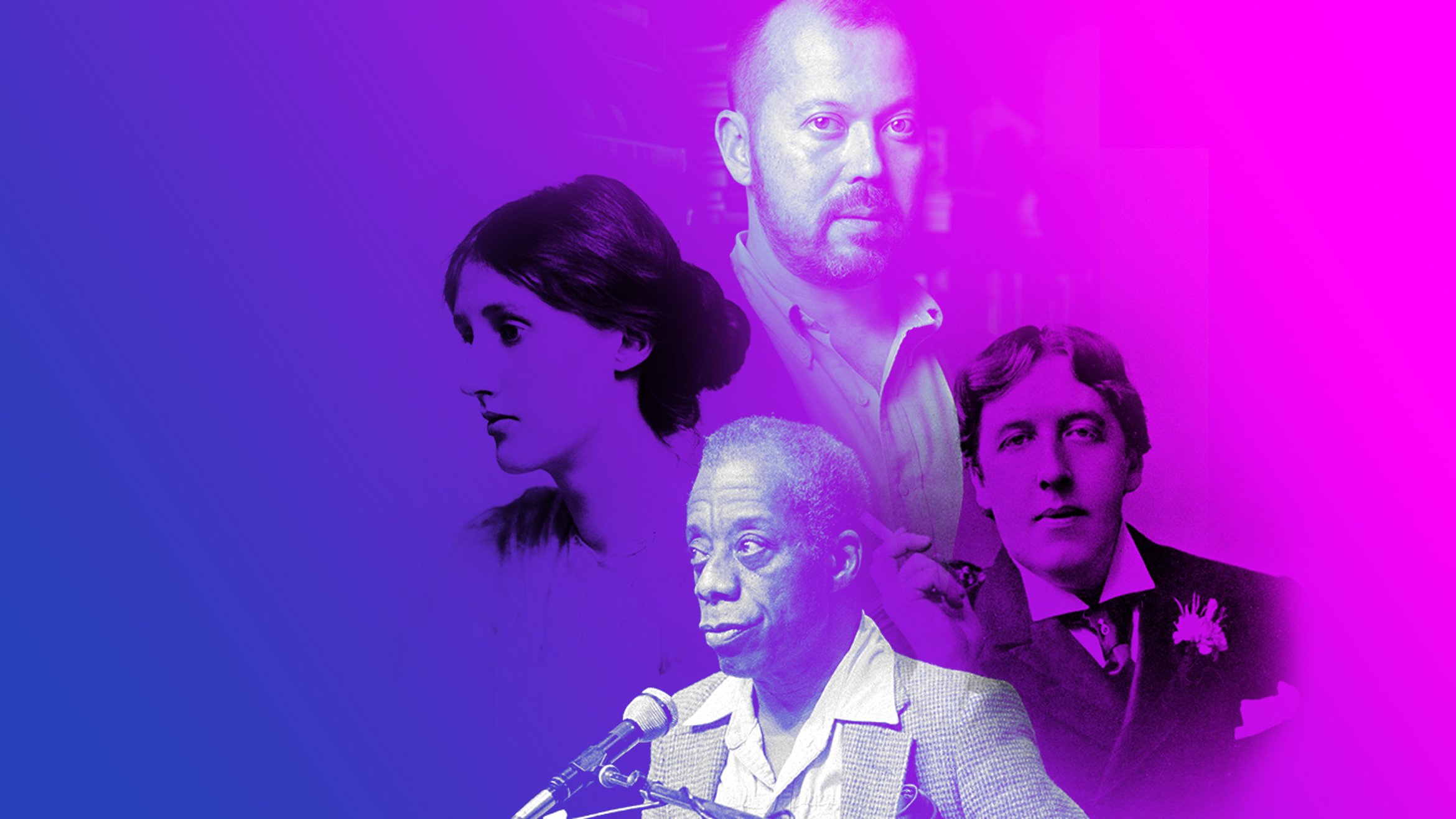Reading My Way Into a Queer Literary Lineage
For queer writers, the discovery of this literary lineage is essential to our very existence, to our very expression of self. We can’t find the words without them.
I’ll never remember exactly how I got the book. My mom must have given it to me. Or I stumbled over it on one of her shelves. It is an old copy, paperback, with some of the pages falling out. The small volume has that odd musty scent, slightly sweet, that worn books with yellowing pages always seem to have. It is an immediately mysterious book. It whispers to me in a language I don’t yet understand. It murmurs hidden histories that I have yet to uncover.
OrlandoOrlando,
It’s easy to hide in the writing, to tuck oneself snug between the pale blue of college-ruled lines and two cardboard covers. There’s a me that lives caught in the ink of it, guarded by cold metal spirals, contained. It’s easier to give everyone else the surface they expect, keep the rest of it safe in these notebooks. On the surface I am everything right: good girl, nice girl, straight A. So when I wear my black eyeliner, they tell me I’m pretty (not disturbingly witchy). When I cut my hair short, they tell me I’m cute (not confusingly handsome). I learned this trick from the books that they gave me: it’s only the surface they’ll read. I am hidden so well, I often lose sight of myself.
The Picture of Dorian Gray
Orlando Dorian
Everyone in this room knows I’m queer but I still feel that sharp hidden thrill as I listen to queer books at work, like I’m holding a secret between my ears. As my coworkers listen to true crime podcasts or music or NPR, I hear the voices of our queer future while I data-enter. Every part of myself hears them differently: the woman-self, the man-self, the guilty-self, the proud-self, the lonely-self, the hopeful-self, the adult-self, the teenage-self, the child-self, and the part where all these selves merge in the middle, crossing all these self-divisions, coming together into a new language that can hold them all at once.
Freshwater
Freshwater
There’s really no way to describe it, this medical witchery we’ve managed. I can write . I can write . I can write . But none of those terms really contain the experience. They don’t describe the way the potions made my body become not my body or the procedures that dropped visions of trees overburdened with fruit inside me. They don’t describe the divisions of self, the way carrying this fantastical fetus puts so many mes back to sleep, a whole hidden castle of dreamers, hormonally ensorcelled, waiting for birth the wake up. I don’t know the words yet to write it. But I’m certain that someday I will.
Her Body and Other Parties
In this room there are so many voices, a chorus of ghosts trailing memories made word. I hear Woolf here and Wilde. I hear James Baldwin and Audre Lorde and Gloria Anzaldua and W.H. Auden and Countee Cullen and Elizabeth Bishop and so many more. Our queer past flowing into queer present. Often I hear these voices echoing out of readings, out of panels, out of new queer books. There are moments when I hear them while writing and they sound like the rushing of waves. In these moments I feel myself as a tiny drop in a wide stream of queer literature, moved along by the work that surrounds me, here making my own tiny ripple, a single moment coming out of our past, disappearing back into our future.
Miranda Schmidt is a writer, editor, and teacher whose work has appeared in TriQuarterly, The Collagist, Electric Literature, Orion, Phoebe, and other journals. Read more at mirandaschmidt.com and @mirandarschmidt
Enter your email address to receive notifications for author Miranda Schmidt
Success!
Confirmation link sent to your email to add you to notification list for author Miranda Schmidt
More by this author
Living with Climate Change in the Forests of Our Burning World
How do I raise a child to love a world that may be dying, to live with compassion in the midst of what could very well be despair?
Finding Sanctuary in Cemeteries, the Forests of the Dead
Even before death takes a loved one, marking us with deep knowledge, we partake of death every day.
How Trees Complicate Our Understanding of Gender
A few years ago, the UK’s oldest tree, a Yew that had spent thousands of years in the appearance of maleness, began to grow female berries.
More in this series
Don’t Hug Me
Trans people have rights because we’re human—not because we’re special. So why does having those rights recognized require a flood of trans tears?
Halloween 1998, Old Man with Old Wife
Obviously, I cannot be the old woman. Obviously, I cannot be the woman.
As a Queer Author, I Thought I Had to Come Out Before My Books Did
Some misguided fans believe they are owed information about artists’ sexual and gender identities. As a queer writer myself, this worries me.






